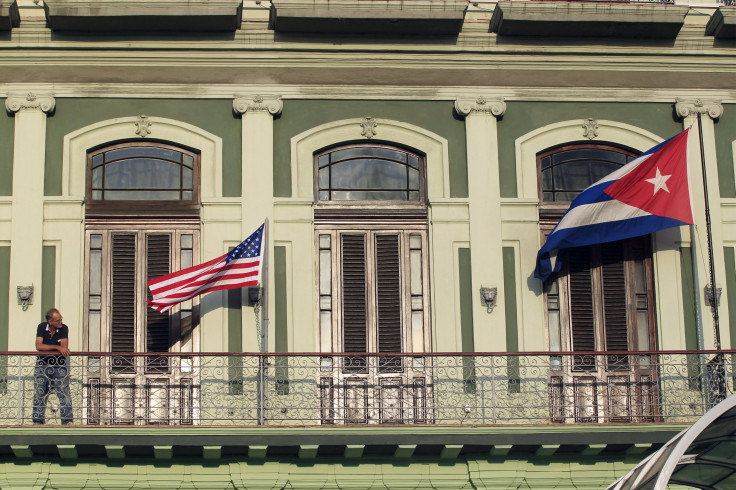Cuba Embargo Poll Shows Most In US Want It Lifted

Most Americans are in favor of lifting the trade embargo with Cuba after President Barack Obama’s watershed announcement in December that the U.S. was working to re-establish diplomatic ties with America’s communist neighbor, according to an Associated Press-GfK poll released Wednesday. Sixty percent of those polled approved of Obama’s move to abolish the embargo dating back to 1960, while only 15 percent of them disapproved of it.
U.S. Sen. Marco Rubio, R-Fla., a possible 2016 Republican candidate for president and the son of Cuban immigrants, is leading the opposition to Obama’s policy in Congress. He held a hearing blasting the administration for not getting enough in return from Cuba in the deal to improve relations. Meanwhile, 45 percent of poll respondents said they approved of the decision to re-establish diplomatic ties with Cuba, and 37 percent of them said they neither approved nor disapproved of it.
Americans were split about how a more open relationship with Cuba would affect ordinary Cubans. Almost one-half said warming ties would lead to about the same amount of freedom that Cubans have now, while 44 percent said they believed Cubans will have more freedom.
The policy change won’t have Americans lining up to buy plane tickets to Havana, according to the poll. Nearly 70 percent said they were either not too likely or not at all likely to get tourist visas for Cuba, while 12 percent said it was either extremely or very likely that they would do so.
The poll, conducted by Gfk Public Affairs & Corporate Communications on behalf of the AP, surveyed 1,045 American adults Jan. 29-Feb. 2. It has a margin of error of plus or minus 3.5 percent.
The House Foreign Affairs Committee is set to hold a hearing on Obama’s policy change toward Cuba Wednesday at 10 a.m. EST. U.S. Rep. Ed Royce, R-Calif., chairs the committee and is one of the critics of the policy, arguing the State Department should have been involved in the secret negotiations between Obama and Cuban officials.
“The Obama administration’s sudden shift on Cuba policy raises many concerns, including how hard the United States pressed the Castro regime on its abysmal human-rights record during the secret White House negotiations that cut out the State Department,” Royce said in a statement. He added:
“Cuba has been the region’s worst human-rights violator for decades, and dissidents on the island have long looked to the United States for support and solidarity. Now the administration is normalizing relations with this oppressive regime without insisting on dramatic improvements in the human-rights front. And more business that gives hard currency to the regime while workers get a few scraps of local currency is a recipe for greater repression, not Cuban liberation. This hearing will provide an opportunity for the committee to press State, Treasury, and Commerce Department officials for the many missing details of its entire normalization plan.”
A live stream of the House Foreign Affairs Committee hearing can be found here.
© Copyright IBTimes 2025. All rights reserved.






















